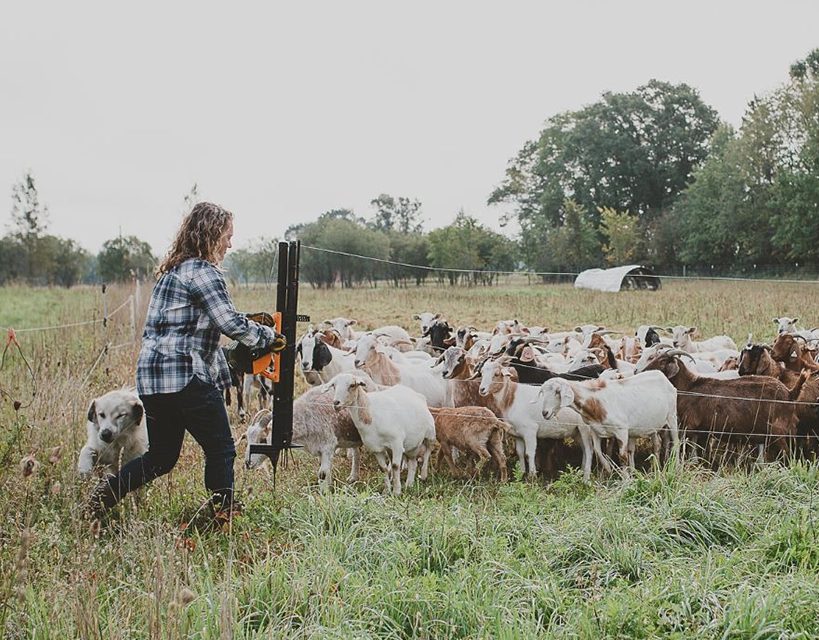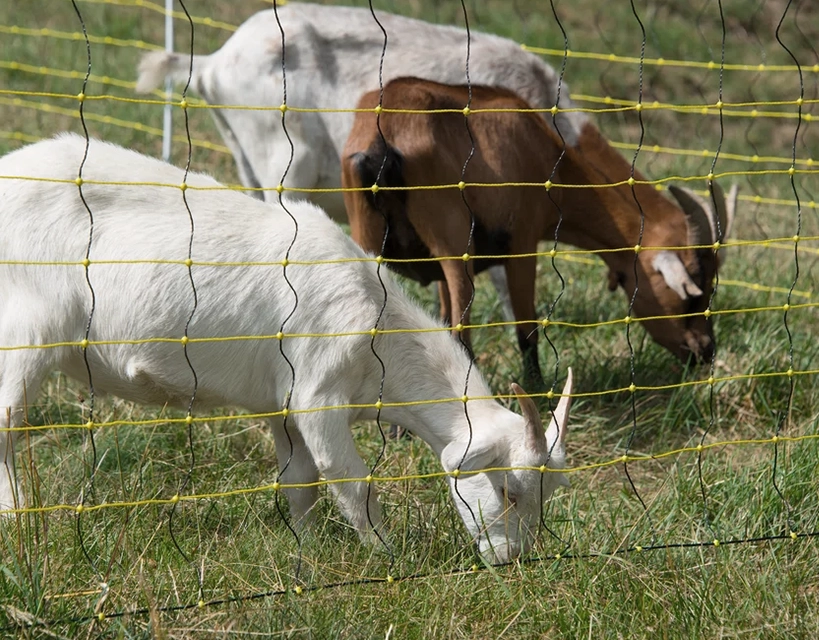Goat Conductor Buyer's Guide
|
Conductors for goats
|
Type of Fence: The type of conductor material will depend on whether you are building a permanent or mobile fence. Polywire is ideal for mobile fences as they are affordable, quick to install, and easy to take down when needed. For faster setup, we recommend using electric fence reels. High-tensile wire is the best choice for permanent fencing, as although it requires more effort to install, it will last longer. This material is highly conductive and often weather-resistant, thanks to its aluminium coating. For an even simpler solution, consider using goat netting or the convenient SmartFence system.
More wires: Goat fences typically need more electric wires spaced closer together compared to fences for cattle or horses. This prevents goats from slipping through gaps or attempting to climb the fence. A good rule of thumb is to place wires every 8-10 inches (20-25 cm).
Agility and Climbing Ability: Goats are excellent climbers and jumpers, so fences need to be taller than those for other animals like cattle or sheep. A fence for goats should be at least 1.2–1.5 metres high.
Our recommendations for goat fencing:
Polywire: These consist of a narrow mesh of conductive metal wires (stainless steel and/or copper) and plastic threads (PE or PP). This combination makes polywire strong and durable, suitable for both mobile and permanent fences.
High-Tensile Wire: This type of fencing wire is perfect for permanent goat fences. Its zinc-aluminium alloy coating makes it highly conductive and corrosion-resistant. An aluminium layer around the core enhances conductivity, making it up to 15 times more conductive than standard wire. With additional tensioning springs and strainers, high-tensile wire can be pulled taut enough to allow for large post spacings of up to 20 metres. While high-tensile wire may have higher initial costs, its performance and long lifespan make it well worth the investment.
Netting: Electric goat netting is a safe, effective, and portable solution for containing goats. This durable, highly visible fencing delivers a mild electric shock to prevent escapes, ensuring security while being easy to install and relocate. Ideal for rotational grazing and temporary enclosures.


The right insulators for goat fences
Insulators should match the fence material used. There are insulators for wires, strands, and specialty wire. Pay attention to the intended use and the material of the posts. They are made from durable, non-conductive (insulating) materials such as plastic, rubber, or ceramic. Plastic insulators are the most common as they are lightweight, weather-resistant, and cost-effective. Plastics like polyethylene or polypropylene are often used because they are weather-resistant and durable.
Ceramic insulators offer very high insulation capacity and are particularly resistant to extreme weather conditions, although they are more expensive and heavier. Therefore, they are often only used as strain and corner insulators, as they can better withstand the forces in those areas.
For goat fences, ring insulators, W-insulators, and wire clips are particularly suitable.
BARBED WIRE? PLEASE DON'T!
We advise against using barbed wire as a pasture fence for goats. Barbed wire can cause serious injuries to the animals if they try to push through the fence and get tangled in their fur.
Our manufacturers for high-quality conductor material:
Gallagher, e.g., for high tensile wire, wire strands, electric strands
Pulsara, e.g., for affordable pasture wire
Euronetz and Horizont, e.g., for goat nets
|
Select your conductor material in just 3 steps
Coming Soon If you have any questions or would like personalised advice, we are happy to assist you.
|
